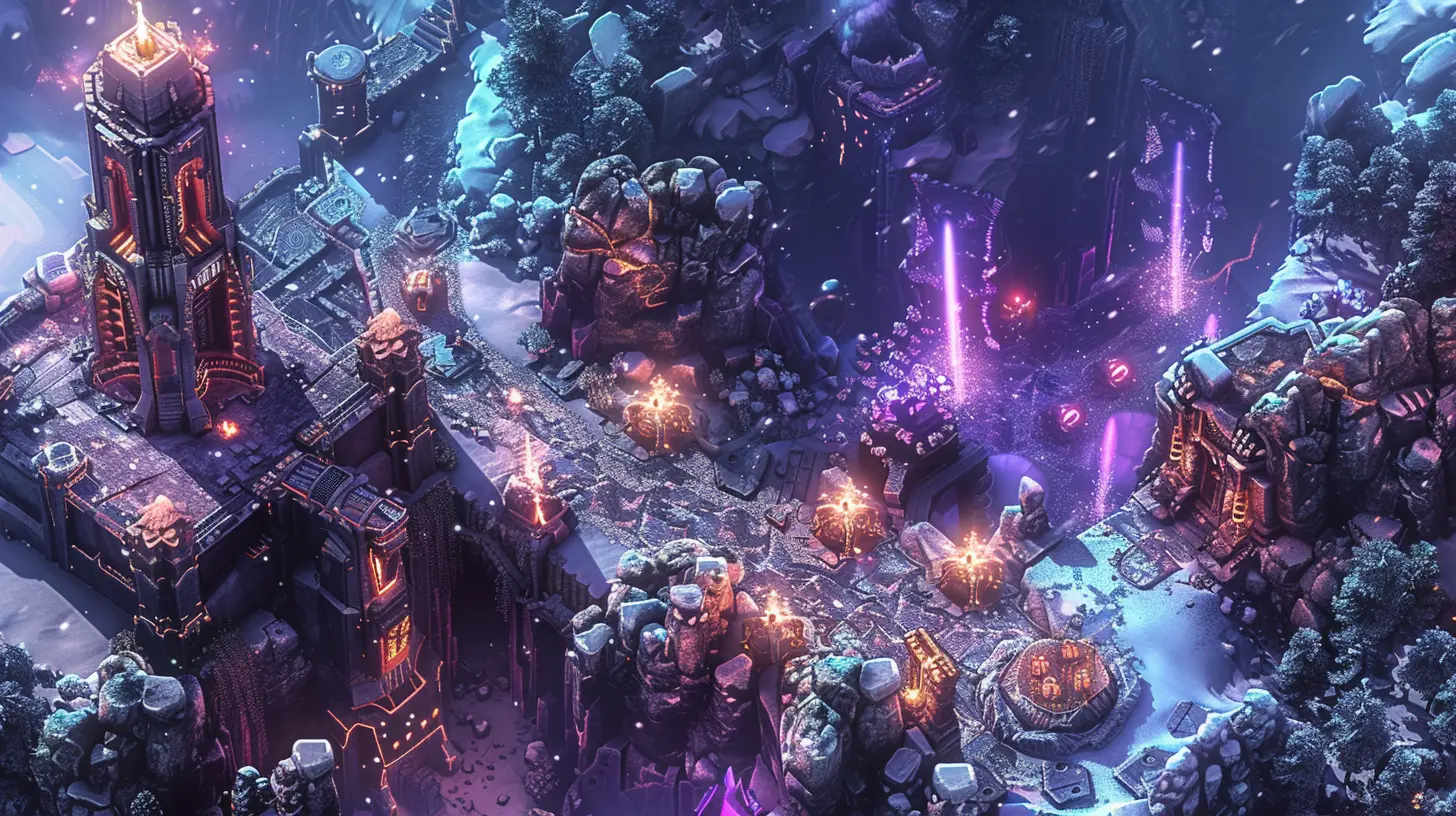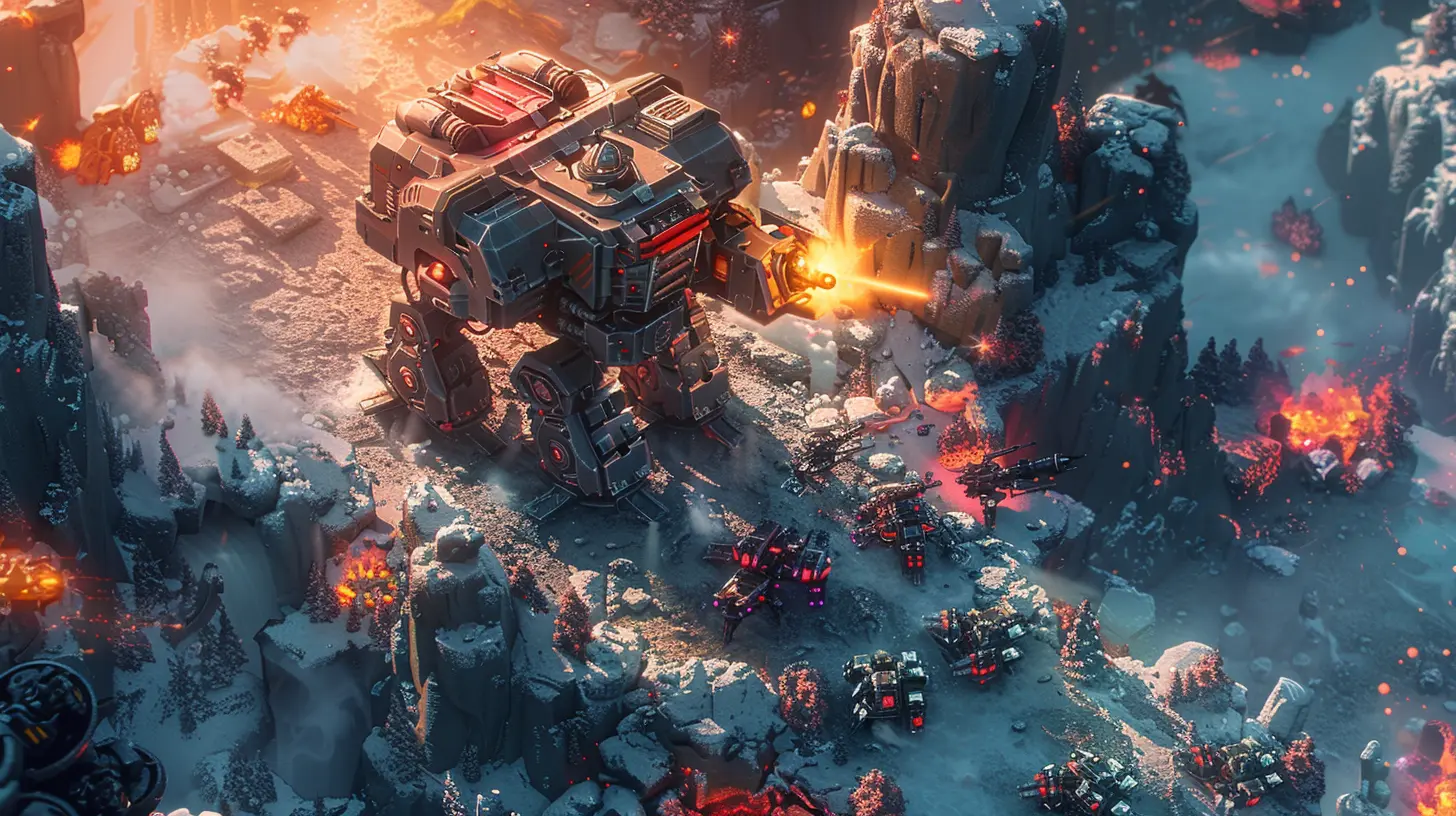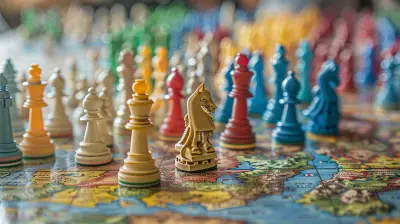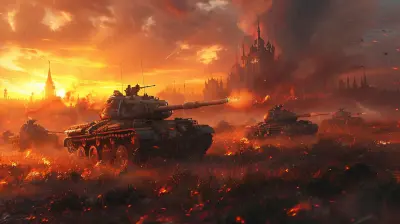10 April 2025
Have you ever wondered what pushes Real-Time Strategy (RTS) players to dedicate hours, days, or even years perfecting their skills in games like StarCraft, Age of Empires, or Warcraft III? It's not just about spamming commands or overwhelming opponents with sheer numbers. Oh no—they’re chasing something deeper, something that speaks to the very core of human nature.
Whether you're an aspiring RTS player, a casual fan, or just curious about the competitive drive behind these games, sit back, grab your favorite snack, and let’s dive into the inner workings of the minds behind the keyboard. Spoiler alert: it’s fascinating.
What Makes RTS Games Unique?
Before we break down player psychology, let’s talk about what makes RTS games stand out. Unlike first-person shooters where reflexes and quick aiming dominate, or role-playing games where storytelling takes center stage, RTS games are all about strategy, foresight, and adaptability.Think about it—you're not just playing the game; you're playing against the player’s mind. An RTS match is like a chess game on steroids, with every decision unfolding in real-time. You’re multitasking like a pro, managing resources, micromanaging units, and coming up with counterplays on the fly. It’s like juggling flaming swords while solving a Rubik’s Cube… all against someone doing the exact same thing. Pretty exhilarating, right?
The Thrill of Outthinking Your Opponent
One of the biggest motivations for competitive RTS players is the sheer thrill of outsmarting their opponent. RTS games reward strategy over brute force, and for many players, there’s nothing quite as satisfying as predicting your opponent’s next move and turning it against them.Why do we love outsmarting others? It boils down to our need for intellectual validation. Humans are natural problem-solvers. When we outthink an opponent, it feels like a mental victory—a confirmation that all those hours spent studying builds, refining micro-skills, and analyzing replays were worth it. It’s not just about winning; it’s about winning smarter.
The Psychology of Control and Autonomy
RTS games give players something incredibly empowering: control. You’re in charge of armies, economies, and strategies. You’re the commander of an entire civilization or faction. That sense of control scratches an itch most people have—our desire for autonomy.In our everyday lives, we can’t always control everything. Work deadlines, unpredictable weather, traffic jams—ugh, the list goes on. But in an RTS? You get to call the shots. And while opponents might throw curveballs, the decisions you make are entirely yours. That’s a powerful feeling! It’s like being the captain of a ship, navigating unpredictable storms, but knowing that every action you take has the potential to steer you toward victory.
The Addiction of Improvement
Let’s face it: RTS games are hard. There’s a steep learning curve, and that’s putting it lightly. But that’s also what makes them so addicting.Have you ever heard of the concept of a “flow state”? It’s that magical zone where you’re so absorbed in an activity that hours feel like minutes. RTS games are perfect for triggering flow states. Why? They’re challenging enough to demand your full attention, but with enough practice, you can feel yourself improving over time. And improvement is addictive.
Every win feels like a direct result of your effort. Lose? You don’t blame bad luck—you analyze what went wrong and vow to do better. It’s a never-ending cycle of growth that keeps players hooked. It’s like leveling up in real life, and who doesn’t love that?
The Social Aspect: Competition Breeds Connection
Believe it or not, many RTS players are driven not just by competition but by community. Sure, at first it seems like a battle of wits and will, but the competitive RTS scene is surprisingly social. You’ve got online forums, Discord servers, tournaments, and even in-game chat where players exchange strategies (or throw some friendly banter).Competition creates camaraderie. Think about rivals in sports—they might be up against each other, but there’s also mutual respect. RTS players bond over shared experiences: the heartbreak of a close loss, the adrenaline rush of a comeback win, or the excitement of pulling off a perfectly executed strategy. The friendships formed in these communities often last well beyond the games themselves.
A Hunger for Recognition
Let’s be honest—we all like to feel seen. For competitive RTS players, the recognition of their skills can be a huge motivator. Whether it’s climbing the ranked ladder, winning a local tournament, or earning the respect of peers, that validation feels pretty amazing.Recognition isn’t just about bragging rights, though. It’s also about proving something to yourself. That rank on the leaderboard or that win streak? It’s tangible evidence of your hard work paying off. And for many players, that’s incredibly rewarding.
The Role of Adrenaline and Stress
Now, here’s the kicker: RTS games are intense. The nonstop decision-making, the constant pressure to adapt, the fear of making one small mistake that could spiral into disaster—it's a recipe for stress. But here’s the twist: some players thrive on it.Stress isn’t always a bad thing. In fact, the right amount of stress can be incredibly motivating. It sharpens your focus, quickens your reflexes, and makes victories feel all the more rewarding. For competitive RTS players, that adrenaline rush is like a rollercoaster ride—they know it’s intense, but they wouldn’t have it any other way.
The Desire to Defy Limits
At its core, competitive RTS play boils down to one thing: pushing boundaries. Every player wants to see just how far they can go. Can they beat that top-ranked player? Can they pull off an insane strategy? Can they achieve a flawless execution under pressure?It’s about more than gaming—it’s about self-discovery. Competitive RTS players aren’t just fighting their opponents; they’re fighting their own limitations. And every victory is proof that they’re capable of more than they thought. Who wouldn’t want a piece of that?
What Can We Learn from RTS Players?
Even if you’re not a hardcore gamer, there’s a lot to admire—and even emulate—about the mindset of competitive RTS players. Their drive to improve, ability to think strategically under pressure, and commitment to growth are traits that can be applied to almost any area of life. Whether it’s advancing in your career, tackling personal goals, or just learning something new, that unrelenting desire to get better is a lesson we can all take to heart.Plus, let’s be real: we could all use a little more resource management and long-term planning in our lives. Maybe RTS players are just one step ahead of the rest of us.
Final Thoughts
So, what drives competitive RTS players? It’s a mix of intellect, passion, control, community, and perhaps a bit of adrenaline addiction. They’re not just gaming—they’re solving puzzles, pushing limits, and indulging their inner tacticians. It’s about proving something to themselves, connecting with others, and enjoying the thrill of the game.Next time you watch an epic RTS match or try to dip your toes into one yourself, remember: it’s not just about the clicks per minute—it’s about the mindset behind them. And who knows? Maybe you’ll discover a bit of that competitive spark within yourself too.




Rosalie Johnson
Strategizing with snacks, naturally!
April 18, 2025 at 3:49 AM